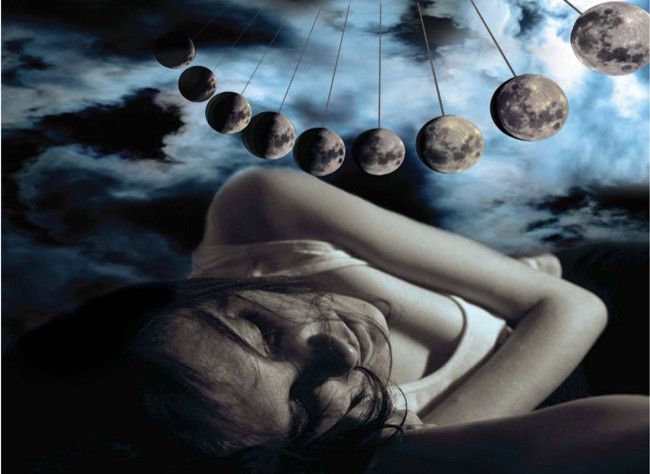Full Moon Brings Troubled Sleep: Lunar Cycle Influences Sleep Cycle, Scientists Find

Tossing and turning at night? Might be because there’s a full moon.
The baleful influence of the moon on your sleep cycle may be more than just folklore, according to a new paper in Current Biology. Scientists from the University of Basel in Switzerland took a close look at data from a previous sleep study of 33 volunteers and found that there was a clear shift at the time of the full moon: The subjects’ brain activity dropped by about 30 percent, they took an average of five minutes longer to fall asleep, and slept for about 20 minutes less than normal. The influence of the moon happened even though the study took place in a laboratory.
"The lunar cycle seems to influence human sleep, even when one does not 'see' the moon and is not aware of the actual moon phase," author Christian Cajochen, of the Psychiatric Hospital of the University of Basel, said in a statement.
Interestingly enough, Cajochen and his colleagues didn’t originally set out to examine the tug of the moon on the human sleep cycle. The data for this latest study was originally gathered for a study on circadian rhythms in sleep -- so neither the technicians nor the volunteers, nor really anyone originally involved in the study, had any idea that the scientists would be analyzing the data with respect to lunar cycles.
“We just thought of it after a drink in a local bar one evening at full moon, years after the study was completed,” the authors wrote (really).
Since there’s no way the moon exerts a gravitational force significant enough to affect the human body, the researchers think the rhythm they observed is another kind of internal clock. Some other animals have been known to cycle with the moon, an ability that could help them anticipate the movements of ocean tides. A 1995 paper in the Journal of Biological rhythms found that Galapagos marine iguanas with internal clocks most closely synched to the moon tend to have a better survival rate, possibly because they know just the right time to go foraging for algae in the intertidal zone.
“Lunar rhythms are not as evident as circadian rhythms and are thus not easy to document -- but they exist,” the authors wrote. “Their role is mysterious, and there are probably large individual differences that underlie the contradictory evidence for their existence -- some people may be exquisitely sensitive to moon phase.”
SOURCE: Cajochen et al. “Evidence that the Lunar Cycle Influences Human Sleep.” Current Biology published online 25 July 2013.
© Copyright IBTimes 2025. All rights reserved.




















